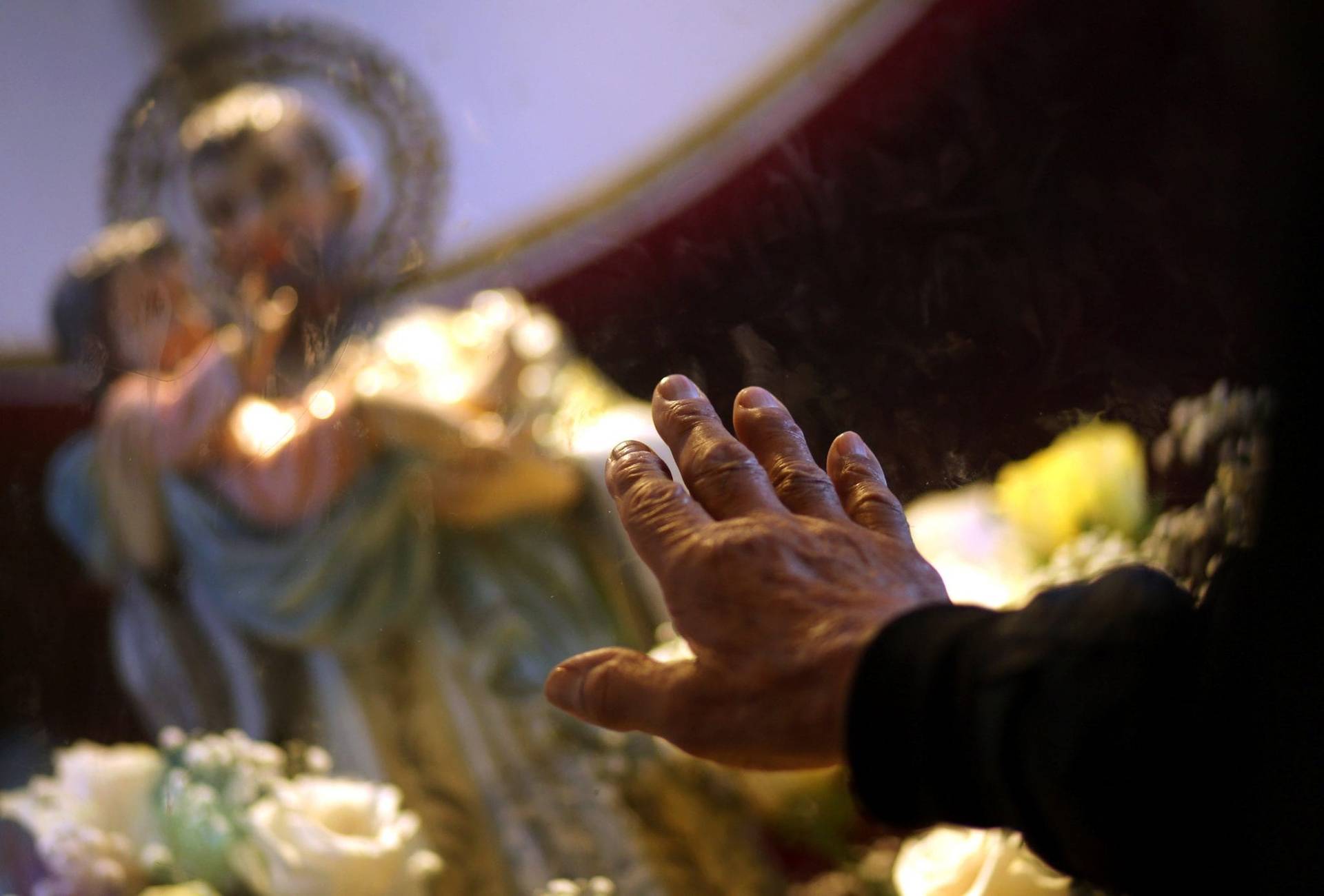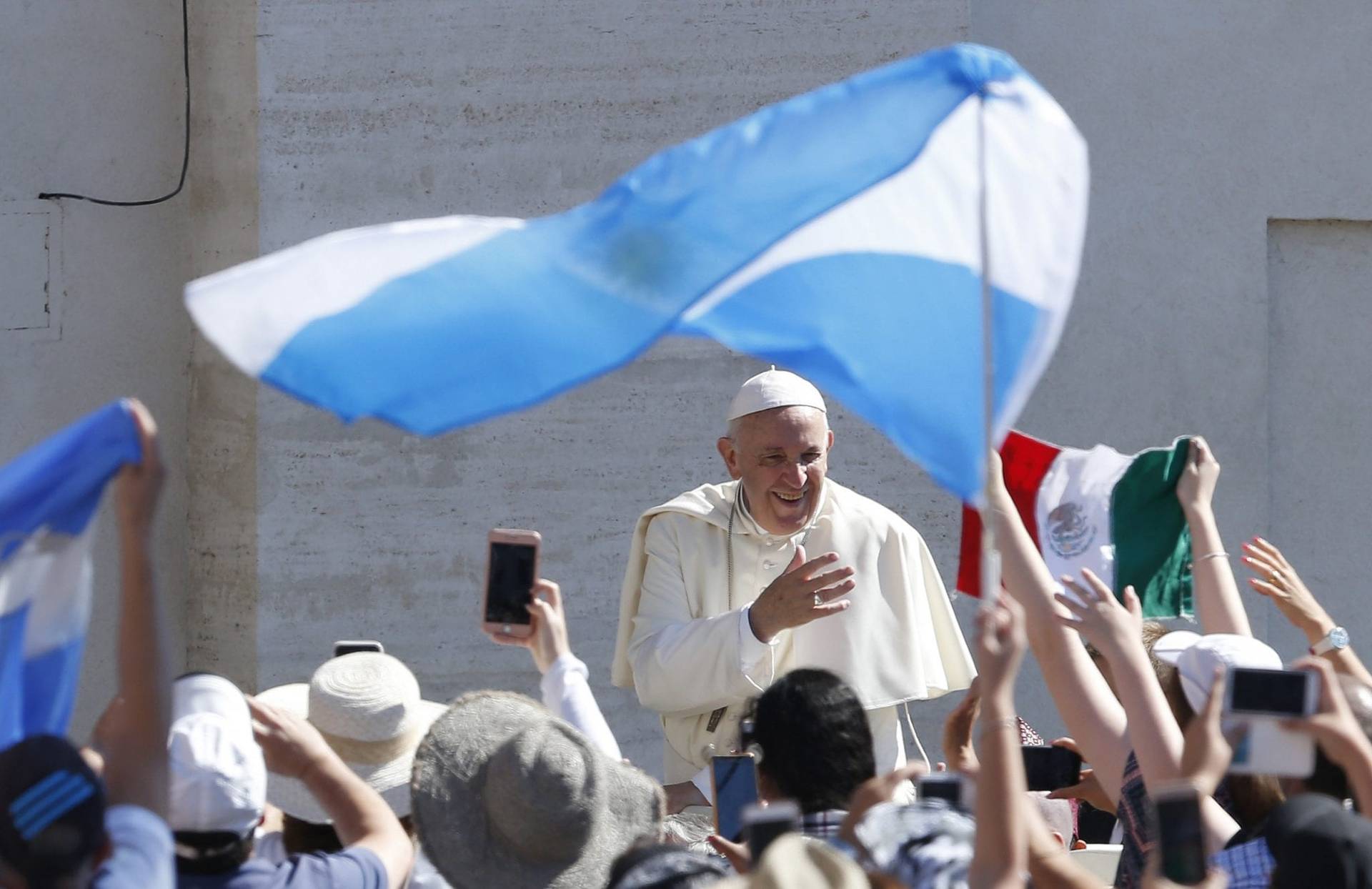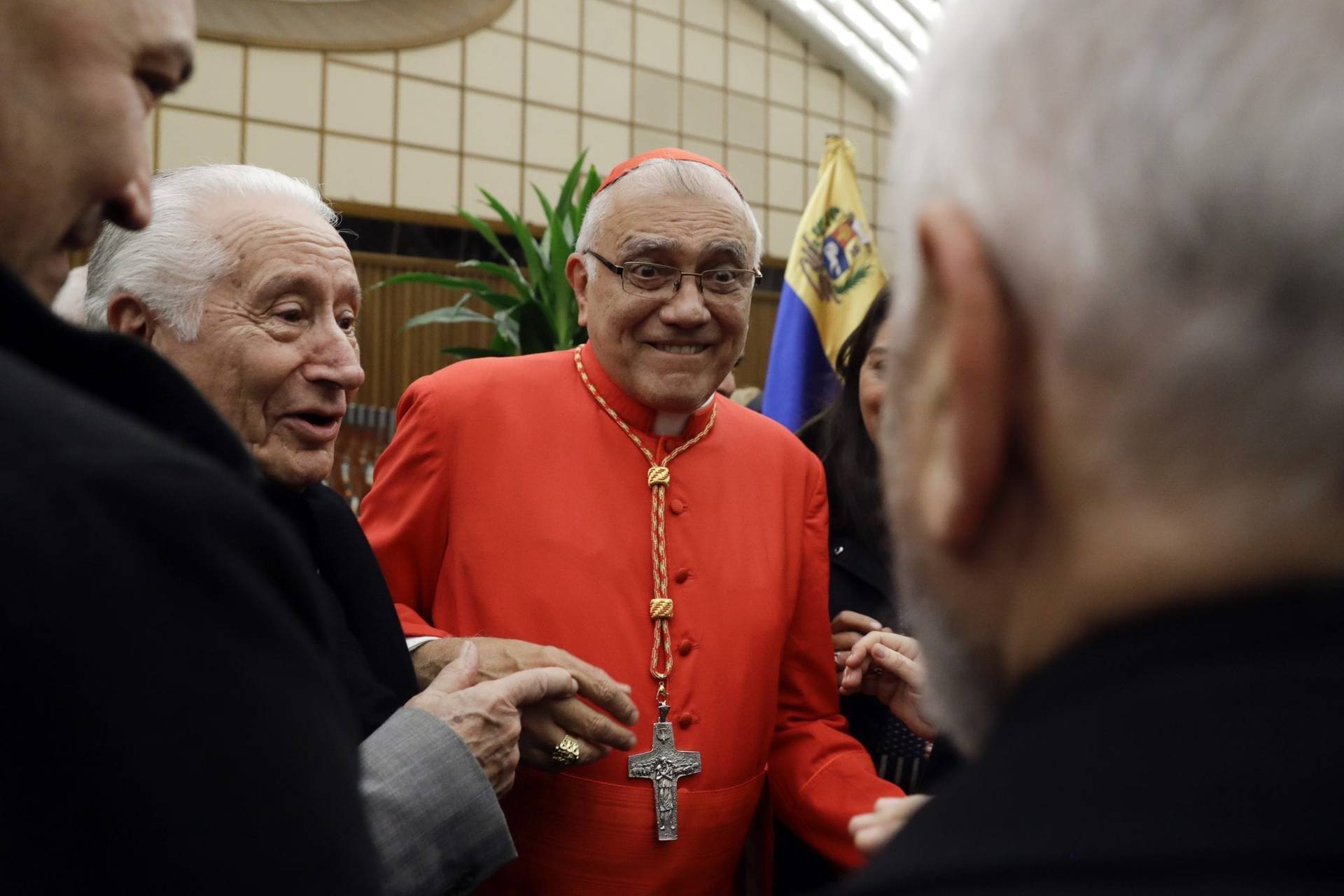[Editor’s note: This is the fourth and last of a series on the “villero priests,” a group of close to 40 priests who live and work in Buenos Aires’s slums, exploring their work, their thoughts and the reality of the people living in the shantytowns Pope Francis was known to spend much of his time in when he was the archbishop of Argentina’s capital.]
BUENOS AIRES, Argentina – “Every life is worth the effort,” is what then-Cardinal Jorge Bergoglio would tell a group of priests who live and minister in Buenos Aires’s slums. The future pope was urging them to help victims of drug addiction, no matter how lost a cause a case might seem.
In a nutshell, this mantra seems to be the driving engine of the nearly 40 priests who today live among Argentina’s poorest in the country’s capital.
Three of the priests who live and work in the villas miseria – slums of misery – spoke with Crux in recent days, and all agreed that even though these shanty towns have been around for decades, they were considered “invisible” until the early 2000s, when an economic crisis in the country made them impossible to ignore.
An estimated seven percent of those who live in the capital live in one of several shantytowns, some of which are not even on the edges of the city, but in its beating heart. Such is the case of the Villa 31, arguably the most emblematic of them all.
The “31” was born in the 1930s – then called the “Slum of Unemployment” – and ever since, authorities have unsuccessfully tried to eradicate it. Two blocks away from Buenos Aires’s most exclusive neighborhood, it’s visible from virtually every route in and out of the city.
If you enter by plane, train or car, the conglomeration of small homes that reaches the highway is hard to ignore. The current city hall is trying to integrate it into the city by bringing in public services – from schools to sanitation – but it’s a challenge after almost a century of illegal settlements that have survived dictatorships, crises, downturns and drug wars led by rival Peruvian and Paraguayan gangs.
Almost all of the slums today have at least one priest who lives “as another neighbor,” as one of them put it. Though Pope Francis is often credited – and blamed – for the movement officially known as Priest Movement for the Emergency Slums, their work began back in the 1960s.
“The Second Vatican Council and the meetings of the Latin American bishops’ conferences in Puebla and Medellin pointed out the need for the Church to return to the poor, to once again look at them and understand that among them, there’s a very rich experience of faith,” said Father Carlos “Charly” Olivero.
That search for a Church that puts the poor at the center of its ministry in Argentina brings you to different places, Olivero said, but in many ways it flourished as the “Movement of priests for the Third World,” that rejected both the capitalist model as it was being implemented, and Marxism. They began ministering almost exclusively to the poor. Several priests lived among them, and some even worked alongside them, for instance as construction workers or even garbage collectors.
In 1973, the movement divided into two groups: One that rejected the use of armed resistance, and one that developed a theological justification for revolutionary violence, linking it to the right of resistance against oppression. Several members of this second group joined Argentina’s guerrilla movement.
It’s from the first group that the Priest Movement for the Emergency Slums was born, though local media often put all of them under the same label.
“Sharing life with those who live in the slums and the need to think our ministry as oriented to them are the two cores of the curas villeros,” Olivero said. “We’re not joined by an ideological affinity or because we see things in a certain way. We’re brought together by our commitment to the peripheries.”
According to this priest, the movement is united by their different ministerial experience to that of other neighborhoods in Buenos Aires, and they come together in an attempt to understand how to better serve those excluded by the socio-political system.
“No, we’re not joined by a Communist ideology,” is what Olivero – and the two other slum priests – told Crux when asked if the group is, in fact, Communist. “I bet that question comes from the same [people] who claim Pope Francis is a Communist. If they believe that a church that is fully impregnated by the message of the Gospel is communism, then they don’t fully understand what the Communist Party is or what [Karl] Marx thought.”
“I know I’m not wrong when I say that none of the slum priests is comfortable with a Communist proposal,” he said.
According to Father Jose Maria “Pepe” di Paola, the Marxist branch of Liberation Theology that impregnated several countries in Latin America never existed in Argentina. Instead, “we have the Theology of the People.”
“This theology is rooted in Argentina’s experience, which is not fascism, but Peronism,” he said. “It’s left an indelible mark in Argentina’s thought, which is hard to comprehend outside of the country because it’s neither left- nor right-leaning politics.”
Peronism is also hard to understand for many Argentines themselves. Juan Domingo Peron had three presidential terms and all three were very different from the other. Though generally perceived as close to this political ideology, even the slum priests don’t necessarily agree with their individual definitions of Peronism – though they all categorically say it’s “not Marxism.”
According to Father Lorenzo “Toto” de Vedia, Peronism is defined by one of Peron’s most well-known phrases: “’The only truth is reality’ … [and it] requires pragmatism to do what needs to be done according to a specific historical moment. Peronism does what it believes is needed.”
Yet many, like di Paola, distinguish between what he sees as the true Peronist ideology from the various “so-called Peronist governments.”
“Peronism has its own identity, profoundly identified with Christian and humanistic doctrines,” di Paola said. “One can debate who governed right or wrong, but as a doctrine, it was born rooted in the Church’s social doctrine and [our society has] been shaped by that.”
He believes that only Peron’s first government, from 1946 to 1952, when he was married to Eva Duarte – better known as Evita – fully applied the Peronist ideology, officially called Justicialista. “None of the others did,” di Paola said.
Peron rose to power after being a behind-the-scenes leader of a military coup that had the support of the Catholic hierarchy. During the first years of his government, he continued to enjoy this support, and Evita was even welcomed by Pope Pius XII in Rome. She also met with Pius’s ambassador to France and successor in the papacy, Angelo Giuseppe Roncalli.
It’s worth noting that by 1949, Peron’s ties with the hierarchy began to unravel, and the dispute soon escalated into persecution and violence.
In its origins, Peronism had a very specific understanding of “the people.” It was a popular movement, but not a populist one, claiming not to govern for the people but with the people.
According to Olivero, understanding the category of “people” is very important.
In Peronism – and more importantly, for Argentina’s Theology of the People – the priest said, “the people” is understood in the absolute dignity of each individual person, born from the fact that “we’re each created in the image and likeness of God, and saved by Christ through his sacrifice,” but also as the “collective that we form as brothers and sisters who walk together towards God.”
Hence, Olivero said, when the slum priests speak of living with “the people” and when Pope Francis talks about the “holy and faithful people of God” they understand it as distanced from both liberal proposals that foster individuality and from Communism that presents the people as a “collectivism.”
“We’re all important, in our ties, our walking together, each with our inalienable individual dignity,” he explained, acknowledging that “the people” is also defined in a narrow sense as the poor and the dispossessed.
God, not politics, makes every life worth the effort
In 2016, answering a question posed to him by the journalists who’d accompanied him during his trip to Mexico, Pope Francis famously said that a politician [the question referred to Donald Trump, but the pontiff never named him] who “thinks only about building walls, wherever they may be, and not building bridges, is not Christian.”
The then-candidate for president of the United States had accused the pope of being a “political man” in an interview, and Francis answered: “Thank God he said I am a politician because Aristotle defined the human person as an ‘animal politicus’ [a political animal]. So at least I am a human person.”
Francis added, “As far as what you said about whether I would advise to vote or not to vote, I am not going to get involved in that.”
Throughout their interviews – three hours in total – the Argentine priests spoke about their vocations, their ministry, the deep faith they encounter among the people living in the slums, the affinity they have with the Argentine pope, and the work they do to rescue victims of human trafficking, drug addiction and hunger.
Not once did they talk about how Peronism inspired them to become priests or influenced their ministry, despite being willing to answer questions on this political ideology and two of them acknowledging that, as animal politicus, Peronism is the Argentine political ideology to which they most relate.
With 2019 being an electoral year in Argentina, the three villero priests interviewed by Crux avoided voicing on the record support for any candidate.
“You want to know what moves me?” Olivero asked. “John 15: remain.”
He’s talking about the Gospel passage that says: “If you remain in me and I in you, you will bear much fruit; apart from me you can do nothing. If you do not remain in me, you are like a branch that is thrown away and withers; such branches are picked up, thrown into the fire and burned. If you remain in me and my words remain in you, ask whatever you wish, and it will be done for you.”
Follow Inés San Martín on Twitter: @inesanma
________________________________________________
Crux is dedicated to smart, wired and independent reporting on the Vatican and worldwide Catholic Church. That kind of reporting doesn’t come cheap, and we need your support. You can help Crux by giving a small amount monthly, or with a onetime gift. Please remember, Crux is a for-profit organization, so contributions are not tax-deductible.













